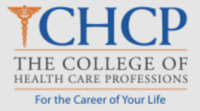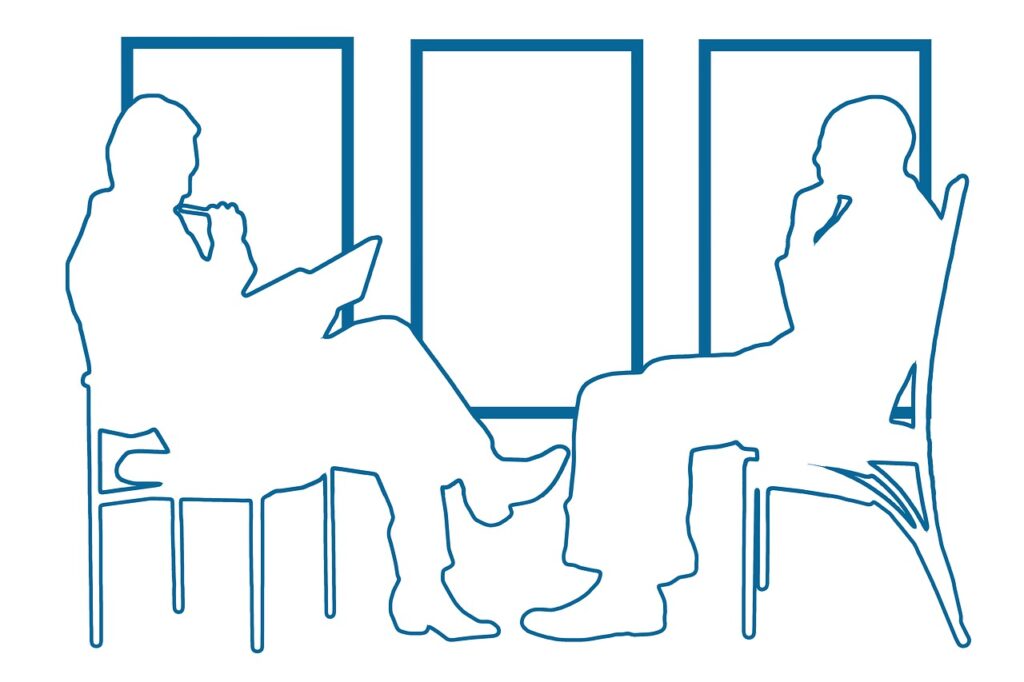Medical billing and coding play a crucial role in the allied healthcare industry. These professionals ensure that healthcare providers receive proper reimbursement for their services by accurately assigning codes to medical procedures and diagnoses. Without skilled medical billers and coders, healthcare organizations would face financial challenges and potential legal issues.
Schools Offering Medical Billing and Coding Programs

MBAC Programs from LSU
Choose from 15+ MBA Degree concentrations from Accounting, Leadership, Music Business, and much more.

MBAC Programs from Ultimate Medical Academy
Medical Billing and Coding Diploma; Medical Office and Billing Specialist Diploma; Associate Degree in Health Sciences — Medical Office and Billing Specialist; Associate Degree in Medical Billing and Coding

MBAC Programs from The College of Healthcare Professions
Medical Billing and Coding Certificate Program
Benefits of Attending a Medical Billing and Coding Program
- Increased Job Opportunities: The demand for qualified medical billers and coders is on the rise, creating numerous job opportunities in hospitals, clinics, and other healthcare settings.
- Competitive Salary Potential: Medical billing and coding professionals can enjoy competitive salaries and potential for career advancement.
- Flexibility and Work-Life Balance: Many medical billing and coding positions offer flexible work schedules and the option to work remotely, allowing individuals to achieve a better work-life balance.
There are various education paths for individuals interested in pursuing a career in medical billing and coding. These include degree programs, non-degree courses, and certificate or diploma programs. Each option offers different levels of depth and specialization, allowing students to choose the path that best suits their career goals and time constraints.
Top Medical Billing and Coding Programs
When it comes to pursuing a career in medical billing and coding, there are several popular online programs that stand out. These programs offer quality education and training to prepare students for success in the field. Here are some of the top online medical billing and coding programs:
City College of New York
City College of New York may offers an Online Certified Billing and Coding Specialist course. The program covers topics related to medical billing and coding, preparing students for roles in hospitals, physician’s offices, and more.
Website: https://www.ccny.cuny.edu/cps/online-certified-billing-and-coding-specialist-cbcs-175-hours
Ultimate Medical Academy
Ultimate Medical Academy is known for offering various healthcare-related programs, including a diploma and an Associate’s degree in medical billing and coding. The program may cover skills such as coding procedures, medical terminology, and healthcare documentation.
Website: https://learn.ultimatemedical.edu/online/programs
Berkeley College
Berkeley College offers a Health Services Administration – Medical Insurance, Billing, and Coding Associate in Applied Science Degree (AAS) as part of its health services programs. Students may learn about healthcare reimbursement systems, medical coding, and administrative processes in the medical field.
US Career Institute
Website: https://www.uscareerinstitute.edu/online-medical-claims-billing-school
Drexel University
Drexel University offers an online medical billing certificate program as part of its healthcare administration or related programs. The curriculum may cover both technical aspects of billing and broader healthcare administration concepts..
Website: https://www.online.drexel.edu/online-degrees/nursing-degrees/medical-billing-coding/index.aspx
Lehman College
Lehman College, part of the City University of New York (CUNY) system, offers a Medical Biller & Coder Certificate Program Online. This program provides students with the skills needed for roles in medical billing and coding within healthcare settings.
Website: https://www.lehman.edu/academics/continuing-education/learn-more/medical-surgical-coding-billing/
Louisiana State University
Louisiana State University (LSU) offers a 100% online Certificate of Technical Studies in Medical Billing and Coding through its health sciences department. These programs likely cover the fundamentals of medical billing and coding in a healthcare context.
Franklin University
Franklin University offers a Medical Billing Specialist Certificate Online. Students may gain knowledge and skills related to medical coding, billing procedures, and healthcare reimbursement. No previous experience is required to enroll.
The College of Healthcare Professions
The College of Healthcare Professions offers specialized programs in healthcare, including a Medical Billing and Coding Certificate Program. The program covers coding practices, insurance processes, and medical office administration.
Website: https://www.chcp.edu/degrees-certificates/online/medical-billing-and-coding-classes/

Medical Billing and Coding Course Curriculum
Medical billing and coding programs provide students with the necessary knowledge and skills to work in the healthcare industry. These programs typically cover a range of topics related to medical billing and coding processes, healthcare regulations, and medical terminology. Students will also learn about the various software and tools used in the field. Some of the key courses include:
- Medical Billing and Health Insurance: This course focuses on the basics of medical billing, including the process of submitting claims to health insurance companies. Students learn about different types of health insurance plans, coding requirements, and reimbursement procedures.
- Coding for Hospital Applications/Medical Office Applications: In this course, students learn how to assign codes to medical diagnoses, procedures, and treatments. They also gain hands-on experience using coding software and tools commonly used in hospitals and medical offices.
- Medical Terminology: This course provides students with a solid understanding of medical terminology, including prefixes, suffixes, and root words. Knowledge of medical terminology is essential for accurately coding and billing medical procedures.
- Medical Contracts, Ethics, and HIPAA: Students explore the legal and ethical aspects of medical billing and coding. They learn about patient privacy regulations, such as the Health Insurance Portability and Accountability Act (HIPAA), as well as the importance of maintaining confidentiality and professionalism in the field.
- Medical Office Procedures: This course covers the administrative side of medical billing and coding. Students learn how to manage patient records, schedule appointments, and handle billing inquiries. They also gain knowledge of common office procedures and protocols.
These courses provide students with a well-rounded education in medical billing and coding, equipping them with the skills and knowledge necessary to pursue a successful career in the field.
Common Medical Billing and Coding Certifications
In the field of medical billing and coding, certifications play a crucial role in demonstrating expertise and competency. Obtaining a certification can enhance job prospects and provide opportunities for career advancement. Here are some common certifications that medical billers and coders can pursue:
- Certified Professional Biller (CPB): This certification, offered by the American Academy of Professional Coders (AAPC), focuses on medical billing practices and covers topics such as medical coding, reimbursement methodologies, and compliance regulations.
- Certified Professional Coder (CPC): The CPC certification, also offered by the AAPC, is designed for professionals who specialize in medical coding. It demonstrates proficiency in code assignment and knowledge of various coding systems, including CPT, HCPCS, and ICD-10-CM.
- Certified Coding Specialist (CCS): The CCS certification, offered by the American Health Information Management Association (AHIMA), is geared towards individuals who have a strong understanding of medical coding in both hospital and other healthcare settings.
- Certified Coding Specialist-Physician-based (CCS-P): The CCS-P certification, also offered by AHIMA, is specifically for professionals who specialize in physician-based coding. It validates proficiency in outpatient coding and knowledge of evaluation and management (E/M) guidelines.
- Registered Health Information Technician (RHIT): The RHIT certification, offered by AHIMA, is broader in scope and covers a range of healthcare information management topics, including medical coding. It demonstrates proficiency in managing health information and ensuring data accuracy and security.
These certifications require passing a rigorous exam and often require ongoing continuing education to maintain certification status. They are recognized and respected within the industry and can significantly enhance career prospects.

Real-life Q&A with a Medical Billing and Coding Specialist
Let’s hear from a medical billing and coding specialist from Arlington, Virginia, Joseph, to gain insights into the field:
Q: Is there a lot of change to keep up with in the medical billing and coding field?
A: Yes, the medical billing and coding field is constantly evolving with updates to coding systems, regulations, and technology. Continuing education is essential to stay updated and maintain professional credentials. There are various online courses, webinars, and industry conferences available to help professionals stay current in the field.
Q: What are the most valuable credentials a medical biller and coder can receive?
A: Some valuable credentials in the field include the Certified Professional Coder (CPC) certification from the American Academy of Professional Coders (AAPC) and the Certified Coding Specialist (CCS) certification from the American Health Information Management Association (AHIMA). These certifications demonstrate proficiency in coding and can enhance job opportunities and earning potential.
Q: What are the most rewarding aspects of medical billing and coding?
A: The most rewarding aspect is the opportunity to contribute to the healthcare system by ensuring accurate billing and coding practices, which ultimately impacts patient care. Medical billers and coders play a crucial role in maintaining the financial health of healthcare organizations and ensuring that patients receive the appropriate care and services.
Q: What are the most challenging aspects of medical billing and coding?
A: One of the challenges is keeping up with the ever-changing coding guidelines and regulations. Accuracy and attention to detail are crucial in medical billing and coding, as errors can lead to claim denials or improper reimbursement. Additionally, working with sensitive patient information and ensuring compliance with privacy laws like HIPAA can also present challenges.
Q: What advice would you give someone looking to enter the field?
A: I would recommend pursuing a formal education program or certification to gain the necessary knowledge and skills. It’s also beneficial to seek practical experience through internships or entry-level positions to apply what you’ve learned and gain hands-on experience. Additionally, staying updated with industry changes and networking with professionals in the field can help you stay ahead and open doors to new opportunities.
By considering these insights and advice from professionals in the field, aspiring medical billers and coders can make informed decisions about their career paths.

Frequently Asked Questions About Medical Billing and Coding Programs
Difference Between Medical Billing and Medical Coding
Medical billing and medical coding are two distinct but interconnected processes in the healthcare industry. While they both involve the management of patient data and financial transactions, they serve different purposes.
Medical billing is the process of submitting claims to insurance companies or other payers to receive payment for healthcare services rendered. It involves translating medical procedures, diagnoses, and services into standardized codes for billing purposes. Medical billers ensure that claims are accurately prepared and submitted to maximize reimbursement for healthcare providers.
On the other hand, medical coding involves assigning specific codes to patient diagnoses, procedures, and services based on standardized classification systems. These codes are used for various purposes, including medical research, billing, and statistical analysis. Medical coders play a crucial role in ensuring that patient records are accurately coded, allowing for proper reimbursement and data analysis.
Possibility of Medical Coding Without a Degree
While a degree is not always required to start a career in medical coding, obtaining a formal education or certification in the field can significantly enhance job prospects and earning potential. Some employers may hire individuals with a high school diploma or equivalent and provide on-the-job training, while others may prefer candidates with postsecondary education or certification.
Medical coding is a specialized skill that requires a strong understanding of medical terminology, anatomy, and coding guidelines. Pursuing a degree or certification program in medical coding can provide comprehensive training in these areas and help individuals develop the necessary skills and knowledge to excel in the field.
Duration of Medical Billing and Coding Programs
The duration of medical billing and coding programs can vary depending on the type of program and the educational institution. Certificate or diploma programs, which focus specifically on medical billing and coding, can typically be completed in less time compared to degree programs.
On average, a certificate or diploma program in medical billing and coding may take anywhere from 6 months to 1 year to complete. Associate degree programs, which provide a more comprehensive education in healthcare and may include additional coursework in areas such as anatomy and physiology, can take around 2 years to complete.
Comparison of Associate Degree and Certificate Programs
Both associate degree and certificate programs in medical billing and coding can provide the necessary knowledge and skills to pursue a career in the field. The choice between the two depends on individual career goals, time constraints, and educational preferences.
An associate degree program offers a more comprehensive education, covering a broader range of healthcare topics and providing a well-rounded foundation. It may be beneficial for individuals who are interested in pursuing higher-level positions or advancing their career in the healthcare industry.
On the other hand, a certificate program in medical billing and coding is more focused and typically takes less time to complete. It may be a suitable option for individuals who want to enter the workforce quickly or who already have some healthcare or coding experience and are looking to specialize in medical billing and coding.
Time Required to Complete a Medical Billing and Coding Program
The time required to complete a medical billing and coding program can vary depending on the program type and the individual’s schedule and pace of study. Certificate or diploma programs can typically be completed in less time compared to degree programs.
On average, a certificate or diploma program in medical billing and coding can take anywhere from 6 months to 1 year to complete. Associate degree programs, which provide a more comprehensive education, may take around 2 years to complete.
It’s important to note that some programs may offer flexible scheduling options, such as part-time or online courses, which can allow individuals to complete the program at their own pace while balancing other commitments.
